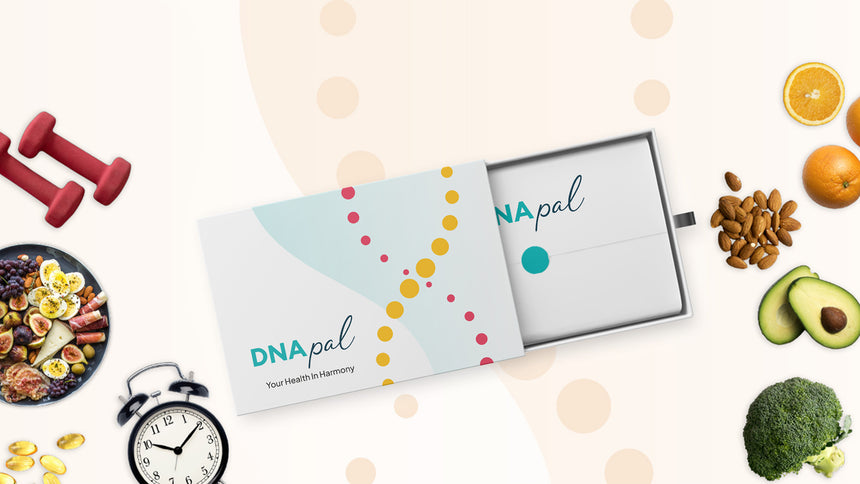Are You a Worrier or a Warrior?
We are all prone to stress now and again, and in many workplaces, stress can impact employee wellbeing and productivity. Today, we’re getting into the science of stress and learning what your DNA can tell you about your stress levels.
For International DNA Day, the Mór Card has teamed up with DNApal, a company that creates personalised stress management plans based on your DNA. Read on to find out how DNA and stress are linked and enjoy 25% off DNA testing when you sign up for a Mór Corporate Membership.

While no one is immune to experiencing stress, our individual responses to stress can vary dramatically and the reason for this may be down to our genes.
Our genetic code is essentially a recipe book that holds the instructions for a specific combination of ingredients that makes each of us unique. Every gene contains a unique recipe that instructs proteins and enzymes in the body to perform specific functions.
Although we (mostly) all possess the same set of genes, our recipes are all slightly different and that is the basis of why we look different, react differently to foods, are predisposed to certain ailments, require varying amounts of sleep, are better suited to different forms of exercise, and respond differently to stress.
These slight variations in our genetic code are referred to as Single Nucleotide Polymorphisms (SNP’s), pronounced “snips”.
Not just an excuse to skip work
Recent research suggests that our genetics may hardwire us to react to stress in certain ways. This may help to explain why some people thrive under pressure while others, perhaps in the same situation, may feel completely overwhelmed and unable to function. In this article we are going to explore how decoding our DNA may help to reduce the impact of stress-related burnout in the workplace.
According to the Global Organisation for Stress (GOFS), approximately 80% of employees are stressed at work, and almost half report they need help managing stress. It turns out that stress-related burnout may not be just an excuse to skip work with burnout being characterised by feelings of exhaustion, a lack of productivity, and a negative attitude towards one’s job.
Before we proceed any further, here is a brief overview of the important players in the stress response and how they impact our physical and mental health.
Players in the stress response
The autonomic nervous system is primarily an unconscious system that regulates bodily processes. It is regulated by the hypothalamus which is the part of the brain that also controls body temperature, hunger, thirst, sleep, and circadian rhythms. When faced with a stressful situation, whether real or perceived (your brain can’t tell the difference between a real or perceived threat), the hypothalamus sends signals to the adrenal glands which then release a cascade of hormones that collectively make up the stress response.
First to the scene is adrenaline which enables you to fight, flight, or freeze like a dear caught in headlights, while noradrenaline increases your heart rate to improve blood flow to muscles thus increasing the speed at which you can fight or flee the stressor.
Dopamine is responsible for feelings of pleasure and reward and is also involved in learning, thinking, focusing, and the ability to make decisions under pressure.
Cortisol, known as the primary stress hormone, arrives on the scene a few minutes later and is responsible for releasing glucose into the bloodstream and increasing the availability of substances that repair tissues.
Once these stress hormones have done their job and the stressful situation is over, these hormones need to be broken down so that the body can recover. Our genes regulate the breakdown of stress hormones and one of the key genes that is involved is the COMT gene.
Meet COMT – the “Worrier Warrior” gene
The COMT gene is an important player in regulating the inactivation of stress hormones allowing their effects to subside and the body and mind to recover. Genetic variations (SNPs) on the COMT gene can cause this process to be either fast or slow.
People with a slow breakdown of stress hormones are considered “worriers”. This typically leads to a lower pain threshold and an increased sensitivity to stress because the hormones and their effects hang around a bit longer. “Worriers” tend to “overthink” certain situations, may be prone to anxiety and insomnia, and tend to be more introverted.
But it’s not all bad, “worriers” tend to have a good memory and concentration skills due to prolonged dopamine levels in the brain. They are often good at problem solving and perform well on complicated tasks.
On the other hand, people with increased COMT activity are considered “warriors” due to an increased capacity to deal with stress. They tend to perform much better under stressful conditions (as compared to when they are not stressed) and generally have a higher pain threshold.
The down-side to being a “warrior” is that this group tends to be more prone to anger, depression and impulsivity. They often end up craving stimulants to increase dopamine levels.
Whether you are a “worrier”, a “warrior” or somewhere in between, a DNA test can provide insight into how your genes influence your susceptibility to stress. Using this information, we can help you develop a personalised stress management plan to increase your resilience to stress and therefore optimise both your physical and mental wellbeing. Imagine the impact this could have on organisations! Improving the stress resilience of individuals has the potential to create a healthier, happier and more productive workplace.
The DNApal test:
The test is non-invasive and can be done at home, all we need is a simple cheek swab.
The DNApal test covers general female and male health, predisposition to hormone imbalance, sleep, stress, allergies, gut health, metabolism, insulin risk, sensitivities to caffeine and alcohol, lactose intolerance, gluten intolerance, blood clotting, cholesterol, specific nutrient need, heart health, healthy ageing and ideal exercise type.
You will receive an easy-to-understand, colour-coded personalised report of your results along with personalised diet and lifestyle recommendations to suit your unique DNA.
The best part is that your genes don’t change, so you only have to do this test once! The science however is always evolving and with that comes the potential for even further personalisation of your health and wellbeing.
--
This guest blog was supplied by DNApal.
Enjoy 25% off DNA tests with The Mór Card and discover personalised stress management techniques.

